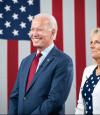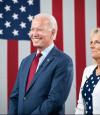Site Search
Copyright © 2024 Highbrow Magazine
by Eric Green
After I regained composure and equilibrium, I was left in further disbelief when I discovered two eggs in that pot. I realized I had rudely interrupted the nesting of this bird. I imagine it regarded my sudden appearance as a grave threat to the livelihood of its still-to-be-hatched chicks and wasn’t about to let me interfere.
Read more...by Forrest Hartman
One of the primary messages of Food, Inc. was the fact that an extremely limited number of companies control the global food system, and that money is often the driver behind policy that would be better set based on factors like health, safety, and long-term sustainability.
Read more...
























































































































































































































































































































Copyright © 2024 Highbrow Magazine






